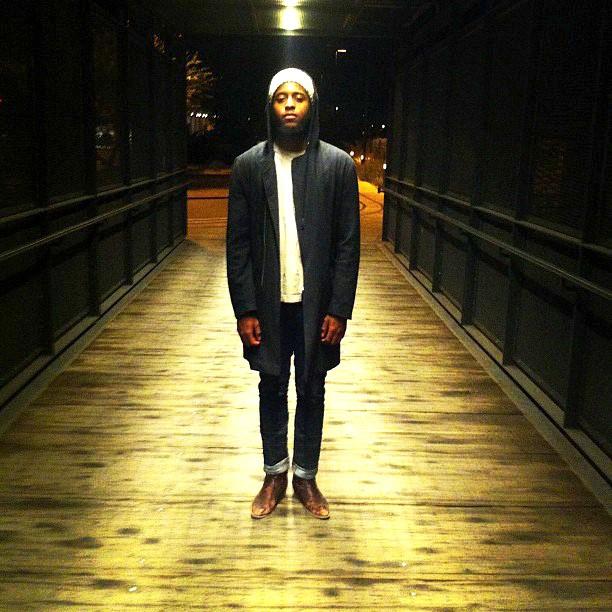In society increasingly monopolized by technology, where the Internet has formed a single, worldwide audience, the boundaries between cultural identities are being blurred. Here in Tucson, there is an original mind at work drawing inspiration from own disparate cultures.
The Original Saku is his musical alias, and his given name is Gregory Saku Grant.
Like so many others, Saku landed in Tucson, far from his West Virginia home, due to an impulsive need for change. Leaving the East Coast to follow the dream of the Wild West, the 20-something musician began anew in September of 2010.
In his westward exploration, he brought with him wanderlust, ambition and his alternative hip-hop music.
In the two years since, Saku has redefined Tucson’s musical culture.
“The thing about Tucson is, people know about hip-hop, people like hip-hop, definitely,” Saku said. “But there’s not really like a hip-hop artist that’s blown up in Tucson recently. And that’s why I stayed. There’s room for that.”
In a short time, he has already established a reverberating alternative hip-hop sound with a following to match. He is, in a sense, a cultural mixologist. Transcending the southwestern vibe of Tucson with his East Coast roots, Saku is innovating hip-hop as an extension of both cultures.
“Tucson has its own culture … and I’m embracing it,” Saku said. “I wear cowboy boots. You will not not see me in cowboy boots unless my feet are uncomfortable.”
Saku’s lack of a specific cultural identity defines him and his music, making him an intriguing anomaly in a genre of music whose social dogma insists upon a stereotyped norm.
Saku defies the stigma of the popular image, saying that to pursue hip-hop “you had to be a gangster, had to sell drugs, had to go to jail, and that’s just not me.”
This fusion of cultural ideologies is what makes Saku pertinent.
A central part of Tucson, the UA has taken this culture to the classroom as the first school in the nation to offer a hip-hop minor.
Saku said he feels the minor is the precursor to a shift in hip-hop. “You’ll see how hip-hop is changed, and where it started,” Saku said. “You’ll see how hip-hop is really supposed to be. Like now, what you’re hearing is rap. Rap and hip-hop are two different things.”
Saku said, though, that he is unsure of the validity of the minor in terms of culture. “If you’re going to hip-hop shows because you want to learn more about it, listening to artists and looking online, doing research, figuring out where it all came from, you’ll definitely learn a lot more than you would in a class,” Saku said. “It has to be hands-on.”
He said he thinks the class is relevant, however, adding, “I do think that this is something that people want to learn about.”
Tucson provides students, the community and talented minds like Saku the opportunity to broaden their musical and cultural horizons.
Saku arrived in Tucson with the intention of forgetting his music but said, “When I saw that music was like a light, here in Tucson, I was like ‘Oh. I mean, I can actually do something with this.”
So he has, and you better believe he’s wearing his cowboy boots.









